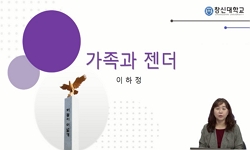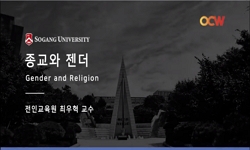이 연구는 한국인들의 젠더정체성에 대한 직접적인 측정을 통해 생물학적인 성별이 아닌 사회학적인 젠더정체성을 이용하여 젠더갈등을 분석한다. 특히, 젠더갈등에 대한 간접적인 측정방...
http://chineseinput.net/에서 pinyin(병음)방식으로 중국어를 변환할 수 있습니다.
변환된 중국어를 복사하여 사용하시면 됩니다.
- 中文 을 입력하시려면 zhongwen을 입력하시고 space를누르시면됩니다.
- 北京 을 입력하시려면 beijing을 입력하시고 space를 누르시면 됩니다.
https://www.riss.kr/link?id=A107863608
- 저자
- 발행기관
- 학술지명
- 권호사항
-
발행연도
2021
-
작성언어
Korean
- 주제어
-
등재정보
KCI우수등재
-
자료형태
학술저널
- 발행기관 URL
-
수록면
5-42(38쪽)
-
KCI 피인용횟수
0
- DOI식별코드
- 제공처
- 소장기관
-
0
상세조회 -
0
다운로드
부가정보
국문 초록 (Abstract)
이 연구는 한국인들의 젠더정체성에 대한 직접적인 측정을 통해 생물학적인 성별이 아닌 사회학적인 젠더정체성을 이용하여 젠더갈등을 분석한다. 특히, 젠더갈등에 대한 간접적인 측정방식에서 벗어나, 사회정체성 이론에 근거하여 내집단 성별과 외집단 성별을 구분하고, 각각에 대한 정서적 태도격차로서 표현되는 젠더갈등을 측정함으로써 분석을 실시한다. 본 연구의 주요 분석결과에 따르면, 첫째, 한국인들의 젠더정체성은 성별과 소속집단에 따라 그 수준이 상이하다. 둘째, 사회정체성 이론이 제시하듯이, 젠더정체성이 높을수록 젠더갈등의 수준도 높다. 또한, 이러한 패턴은 남성보다 여성에게서 더욱 두드러진다. 셋째, 다른 연령집단보다 20대가 더 높은 젠더갈등 수준을 보인다. 넷째, 젠더갈등 수준이 높은 사람들일수록 정당정치에서의 정서적 양극화 수준도 높은 것으로 확인됨에 따라 젠더갈등의 정치화 가능성을 시사한다.
다국어 초록 (Multilingual Abstract)
We examine gender identity and gender conflicts among South Koreans. By measuring gender identity, we analyze gender conflicts via sociological gender, instead of biological sex. In addition, relying on social identity theory, we provide direct measur...
We examine gender identity and gender conflicts among South Koreans. By measuring gender identity, we analyze gender conflicts via sociological gender, instead of biological sex. In addition, relying on social identity theory, we provide direct measures of gender conflicts based on in-group and out-group gender. According to our findings, first, the level of gender identity is different depending on one’s sex, income level, residence region, religion, and partisanship. Second, individuals with higher levels of gender identity are more likely to show higher levels of gender conflicts. And, this pattern is more salient among women than among men. Third, the twenties are more likely than other age groups to have higher levels of gender conflicts. Lastly, as individuals have higher levels of gender conflicts, they are more likely to show higher levels of partisan affective polarization as well, which implies the possibility of politicization of gender conflicts.
목차 (Table of Contents)
- 논문요약
- Ⅰ. 서론
- Ⅱ. 이론적 논의
- Ⅲ. 데이터와 변수 : 기술 분석
- Ⅳ. 회귀분석
- 논문요약
- Ⅰ. 서론
- Ⅱ. 이론적 논의
- Ⅲ. 데이터와 변수 : 기술 분석
- Ⅳ. 회귀분석
- Ⅴ. 결론
- 참고문헌
- Abstract
참고문헌 (Reference)
1 연지영, "혐오가 유머를 만날 때 : 타인 혐오를 증폭시키는 유머와 한국 사회의 젠더갈등에 대한 함의" 한국정치학회 54 (54): 219-250, 2020
2 김은하, "한국판 남성에 대한 양가적 태도 척도 타당화 연구" 한국문화및사회문제심리학회 26 (26): 525-549, 2020
3 신광영, "한국의 성별 임금격차: 차이와 차별" 한국사회학회 45 (45): 97-127, 2011
4 류연규, "한국사회 젠더갈등인식에 관한 탐색적 연구: 성별 조절효과를 중심으로" 한국사회정책학회 26 (26): 131-160, 2019
5 이재경, "한국사회 젠더 갈등과 ‘사회 통합’" 한국법학원 134 (134): 94-109, 2013
6 강주현, "한국 여성 유권자의 정당호감도와 여성 정치인 평가: 20대 총선을 중심으로" 한국정치정보학회 23 (23): 1-32, 2020
7 박선경, "젠더 내 세대격차인가, 세대 내 젠더격차인가?: 청년 여성의 자기평가이념과 정책태도 분석" 한국정당학회 19 (19): 5-36, 2020
8 황정미, "젠더 관점에서 본 민주화 이후의 민주주의: 공공 페미니즘과 정체성 정치" 비판사회학회 (114) : 18-51, 2017
9 배은경, "젠더 관점과 여성정책 패러다임: 해방 이후 한국 여성정책의 역사에 대한 이론적 검토" 한국여성학회 32 (32): 1-45, 2016
10 신경아, "젠더 갈등의 사회학" 16-35, 2017
1 연지영, "혐오가 유머를 만날 때 : 타인 혐오를 증폭시키는 유머와 한국 사회의 젠더갈등에 대한 함의" 한국정치학회 54 (54): 219-250, 2020
2 김은하, "한국판 남성에 대한 양가적 태도 척도 타당화 연구" 한국문화및사회문제심리학회 26 (26): 525-549, 2020
3 신광영, "한국의 성별 임금격차: 차이와 차별" 한국사회학회 45 (45): 97-127, 2011
4 류연규, "한국사회 젠더갈등인식에 관한 탐색적 연구: 성별 조절효과를 중심으로" 한국사회정책학회 26 (26): 131-160, 2019
5 이재경, "한국사회 젠더 갈등과 ‘사회 통합’" 한국법학원 134 (134): 94-109, 2013
6 강주현, "한국 여성 유권자의 정당호감도와 여성 정치인 평가: 20대 총선을 중심으로" 한국정치정보학회 23 (23): 1-32, 2020
7 박선경, "젠더 내 세대격차인가, 세대 내 젠더격차인가?: 청년 여성의 자기평가이념과 정책태도 분석" 한국정당학회 19 (19): 5-36, 2020
8 황정미, "젠더 관점에서 본 민주화 이후의 민주주의: 공공 페미니즘과 정체성 정치" 비판사회학회 (114) : 18-51, 2017
9 배은경, "젠더 관점과 여성정책 패러다임: 해방 이후 한국 여성정책의 역사에 대한 이론적 검토" 한국여성학회 32 (32): 1-45, 2016
10 신경아, "젠더 갈등의 사회학" 16-35, 2017
11 이재경, "여성주의 정책 패러다임 모색과 ‘성평등’" 한국여성학회 28 (28): 1-33, 2012
12 신경아, "여성정책에서 성평등정책으로? 젠더정책의 오해와 이해" 한국여성학회 32 (32): 1-36, 2016
13 장지연, "승진대기기간의 성별격차와 결정요인" 한국사회학회 41 (41): 104-127, 2007
14 김기동, "성차별주의의 정치적 및 감정적 효과: 한국 유권자들에 대한 실험연구" 한국사회학회 54 (54): 41-82, 2020
15 장승진, "당파적 양극화의 이원적 구조: 정치적 정체성, 정책선호, 그리고 정치적 세련도" 한국정당학회 18 (18): 5-30, 2019
16 허은, "노동시장 계층별 성별직업분리에 관한 연구: 수직적/수평적 분리를 중심으로" 한국사회학회 47 (47): 241-266, 2013
17 김창환, "경력단절 이전 여성은 차별받지 않는가?: 대졸 20대 청년층의 졸업 직후 성별 소득격차 분석" 한국사회학회 53 (53): 167-204, 2019
18 문지영, "‘여성 차별’에 대한 동·서양의 인식과 도전: 임윤지당과 울스턴크래프트(Mary Wollstonecraft)를 중심으로" 한국정치학회 50 (50): 23-49, 2016
19 이지혜, "‘분노의 스윙 보터’ 20대ㆍㆍㆍ남녀 표심 뜯어보니"
20 최종숙, "‘20대 남성 현상’ 다시 보기: 20대와 3040세대의 이념성향과 젠더의식 비교를 중심으로" 비판사회학회 (125) : 189-224, 2020
21 Goldberg, Steven, "Why Men Rule: A Theory of Male Dominance" Open Court 1993
22 Wood, Wendy, "Two Traditions of Research on Gender Identity" 73 : 461-473, 2015
23 Blau, Francine, "Trends in Occupational Segregation by Gender 1970-2009: Adjusting for the Impact of Changes in the Occupational Coding System" 50 (50): 471-492, 2013
24 Jost, John T., "The Role of Stereotyping in System-Justification and the production of False Consciousness" 33 : 1-27, 1994
25 Iyengar, Shanto, "The Origins and Consequences of Affective Polarization in the United States" 22 (22): 129-146, 2019
26 Eagly, Alice H., "The Developmental Social Psychology of Gender" Erlbaum 2000
27 Gaertner, Samuel L., "The Common Ingroup Identity Model: Recategorization and the Reduction of Intergroup Bias" 4 (4): 1-26, 1993
28 Schneider, Monica C., "The Application of Social Role Theory to the Study of Gender in Politics" 40 (40): 173-213, 2019
29 Hochschild, Arlie Russell, "Strangers in Their Own Land: Anger and Mourning on the American Right" The New Press 2016
30 Diekman, Amanda B., "Stereotypes as Dynamic Constructs : Women and Men of the Past, Present, and Future" 26 (26): 1171-1188, 2000
31 Bogardus, Emory S., "Social Distance" University of Southern California University 1959
32 Deaux, Kay, "Sex and Gender" 36 (36): 49-81, 1985
33 Hegeswich, Ariane, "Separate and Not Equal? Gender Segregation in the Labor Market and the Gender Wage Gap" Institute for Women’s Policy Research 2010
34 Walsh, Katherine Cramer, "Putting Inequality in Its Place : Rural Consciousness and the Power of Perspective" 106 (106): 517-532, 2012
35 Charles, Maria, "Occupational Ghettos: The Worldwide Segregation of Women and Men" Stanford University Press 2004
36 Abdelal, Rawi, "Measuring Identity: A Guide for Social Scientist" Cambridge University Press 2009
37 Kim, Nuri, "Intergroup Contact in Deliberative Contexts:Evidence from Deliberative Polls" 68 (68): 1029-1051, 2018
38 Ben-Ner, Avner, "Identity and In-group/Out-group Differentiation in Work and Giving Behaviors: Experimental Evidence" 72 : 153-170, 2009
39 Tajfel, Henri, "Human Groups and Social Categories" Cambridge University Press 1981
40 Halim, May Ling, "Handbook of Gender Research in Psychology" Springer 2010
41 Zucker, Kenneth J., "Gender Identity Disorder and Psychosexual Problems in Children and Adolescents" Guilford Press 1995
42 이사빈, "Gender Conflict Perception and Social Identities: In the Context of Backlash Phenomenon" 아시아여성연구원 35 (35): 1-24, 2019
43 Huddy, Leonie, "From Social to Political Identity: A Critical Examination of Social Identity Theory" 22 (22): 127-156, 2001
44 Donovan, Josephine, "Feminist Theory : The Intellectual Traditions of American Feminism" Continuum 2012
45 Bachmann, Ingrid, "Feminist Approaches to Media Theory and Research" Palgrave macmillan 1-15, 2018
46 Huddy, Leonie, "Expressive Partisanship: Campaign Involvement, Political Emotion, and Partisan Identity" 109 (109): 1-17, 2015
47 Koenig, Anne M., "Evidence for the Social Role Theory of Stereotype Content : Observations of Groups’ Roles Shape Stereotypes" 107 (107): 371-392, 2014
48 Schmader, Toni, "Engendering Identity: Toward a Clearer Conceptualization of Gender as Social Identity" 73 : 474-480, 2015
49 Wark, Colin, "Emory Bogardus and the Origins of the Social Distance Scale" 38 (38): 383-395, 2007
50 Broockman, David, "Durably Reducing Transphobia: A Field Experiment on Door-to-Door Canvassing" 352 (352): 220-224, 2016
51 Faludi, Susan, "Backlash: the Undeclared War against American Women" Crown 1991
52 Levendusky, Matthew S., "Americans, Not Partisans: Can Priming American National Identity Reduce Affective Polarization?" 80 (80): 59-70, 2018
53 Iyengar, Shanto, "Affect, Not Ideology: A Social identity Perspective on Polarization" 76 (76): 405-431, 2012
54 Wood, Wendy, "Advances in Experimental Social Psychology" Academic Press 2012
55 Greenwald, Anthony, "A Unified Theory of Implicit Attitudes, Stereotypes, Self-Esteem, and Self-Concept" 109 (109): 3-25, 2002
56 Diekman, Amanda B., "A Social Role Theory Perspective on Gender Gaps in Political Attitudes" 34 (34): 486-497, 2010
57 Shayo, Moses, "A Model of Social Identity with an Application to Political Economy : Nation, Class, and Redistribution" 103 (103): 147-174, 2009
58 김형원, "20대 남성, 野지지 55% 與 15%ㆍㆍㆍ 여성은 與 42% 野 22.5%"
59 이소영, "2012 한국 여성 유권자의 정치적 정향과 투표행태" 한국정치학회 47 (47): 255-276, 2013
동일학술지(권/호) 다른 논문
-
정책지지 결정요인과 공론화의 조절효과 : 경기도 기본소득 공론화 사례
- 한국정치학회
- 최희용(Choi Hee Yong)
- 2021
- KCI우수등재
-
당파적 양극화 속 새로운 정치적 대상에 대한 이념적 인식 : 윤석열 현상을 사례로
- 한국정치학회
- 장승진(Seung-Jin Jang)
- 2021
- KCI우수등재
분석정보
인용정보 인용지수 설명보기
학술지 이력
| 연월일 | 이력구분 | 이력상세 | 등재구분 |
|---|---|---|---|
| 2020 | 평가예정 | 계속평가 신청대상 (등재유지) | |
| 2015-01-01 | 평가 | 우수등재학술지 선정 (계속평가) | |
| 2011-01-01 | 평가 | 등재학술지 유지 (등재유지) |  |
| 2009-01-01 | 평가 | 등재학술지 유지 (등재유지) |  |
| 2007-01-01 | 평가 | 등재학술지 유지 (등재유지) |  |
| 2005-01-01 | 평가 | 등재학술지 유지 (등재유지) |  |
| 2002-01-01 | 평가 | 등재학술지 선정 (등재후보2차) |  |
| 1999-07-01 | 평가 | 등재후보학술지 선정 (신규평가) |  |
학술지 인용정보
| 기준연도 | WOS-KCI 통합IF(2년) | KCIF(2년) | KCIF(3년) |
|---|---|---|---|
| 2016 | 0.98 | 0.98 | 1.06 |
| KCIF(4년) | KCIF(5년) | 중심성지수(3년) | 즉시성지수 |
| 1.08 | 1.03 | 1.653 | 0.27 |





 DBpia
DBpia







